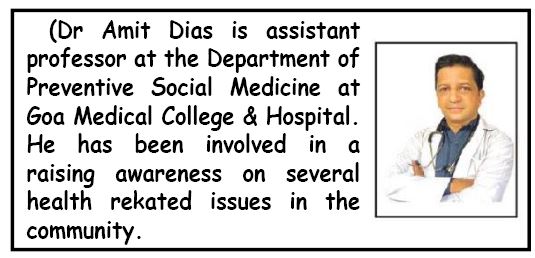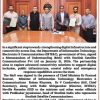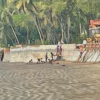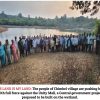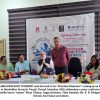Goa is abuzz with excitement as vintage bike and car owners, users, collectors and fans are decking […]
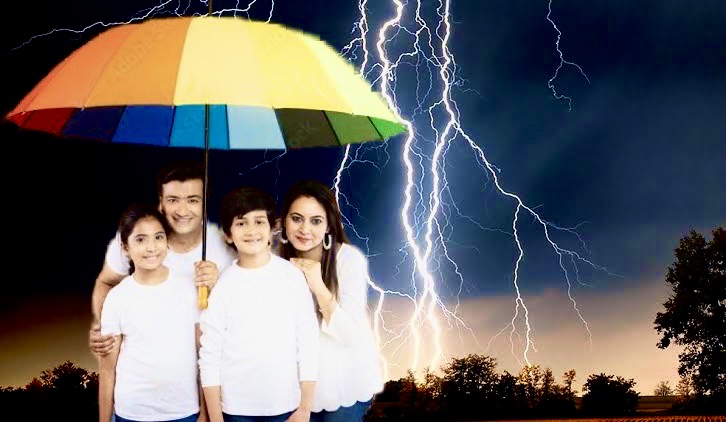
HOW TO STAY SAFE THIS MONSOON… There’re dark clouds to silver lining!
June 08- June14 2024, MIND & BODY, HEART & SOUL June 7, 2024The unprecedented heatwave this year claimed over 100 lives including some staff deployed for the recent Loksabha elections. The good news is that the monsoons have arrived and brought some relief from the scorching heat. However, with the pitter-patter of monsoon rain also come several health concerns. Here are a few tips on monsoon safety courtesy Dr Amit Dias who says, “There is a dark cloud to the silver lining! We definitely need to promote monsoon safety and awareness.”
An interview with Dr Amit Dias
Goan Observer: Since the monsoon has started, it is befitting to discuss how to stay safe and fit during the monsoon months. Please enlighten us on health hazards during the monsoon?
Dr Amit Dias: The monsoon season brings us respite from the heat and livens up our surroundings. But there are some health challenges that we need to be aware of. Here are some of the common health problems.
Dengue, chikungunya and malaria: These are mosquito-borne diseases. Stagnant water serves as a breeding ground for mosquitoes. These vectors breed in clean stagnant water collected in broken bottles, coconut shells and garden thrash. More recently, we have seen a decline in the number of malaria cases, but a rise in the number of dengue cases. Dengue and chikungunya are transmitted by the Aedes mosquitoes which is a day biter. Outbreaks usually occur during the short dry spells of the monsoon season.
Typhoid, cholera, and hepatitis A and E: These diseases are water-borne and spread through contaminated food and water.
Diarrhea: Often caused by consuming contaminated food or water.
Respiratory illness: Common cold and now COVID-19 can spread during the monsoons and one needs to take precautions. Pneumonia, especially in the elderly can be life-threatening.
Leptospirosis: A bacterial infection spread through water contaminated with the urine of infected animals such as rats. We notice a lot of outbreaks during the floods in Mumbai. As people with cuts on their skins walk through water-logged areas, the bacteria enter the system and cause leptospirosis. The patient presents with severe jaundice and can die. The condition is treatable if detected early.
In addition to these diseases, monsoons also poe other hazards to life:
Accidents: Wet and slippery surfaces increase the risk of falls and accidents. Especially in the elderly, it can lead to fractures and head injury. Electrical shocks are also common during the monsoons due to wet surfaces and one needs to be careful. One should also be aware of motor vehicular accidents due to slippery roads and potholes that cannot be seen.
Drowning: Heavy rains can cause floods, and turbulent seas increase the risk of drowning, especially for tourists in a state like Goa. One has to follow the guidelines of the officials.
Lightning Strikes: Thunderstorms are common during monsoons and can be deadly if proper precautions are not taken.
Q: What a lot to worry about! How can we prevent and avoid these diseases and hazards?
A: Prevention is the key. Here are some measures:
Preventing Mosquito-Borne Diseases:
Eliminate stagnant water around homes to prevent mosquito breeding. Once a week empty all water collection sites.
Use mosquito repellents and nets.
Wear long-sleeved clothing.
Preventing Water-Borne Diseases and diarrhea:
Drink only boiled or filtered water.
Avoid street food and ensure food is cooked thoroughly.
Maintain good hand hygiene by washing hands regularly with soap.
Avoid consuming unclean or raw food.
Preventing Leptospirosis:
Avoid wading through waterlogged areas and swimming in lakes contaminated with animal urine.
Wear protective footwear if you need to walk through flooded areas.
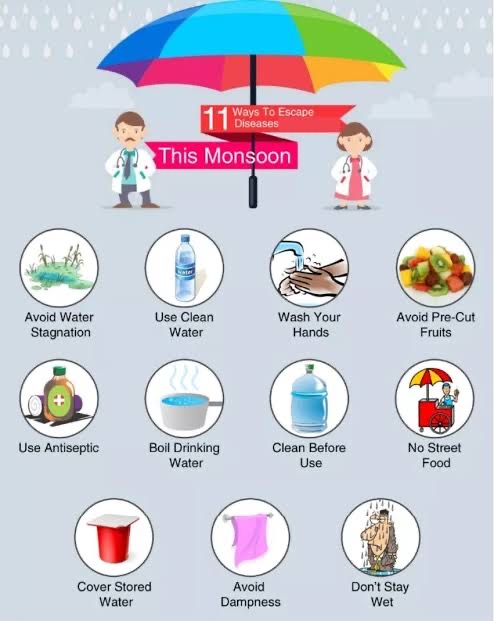
Q: What general hygiene precautions should we take during the monsoons?
A: Wash your hands frequently with soap and water. Keep your surroundings clean and dispose of garbage properly. Ensure proper drainage around your home to prevent water stagnation. Prevent vector breeding sites around the house. Use disinfectants to clean floors and surfaces. Do not stay wet, do not use wet shoes.
Q: This year, we had several instances of damage due to lightning in Goa. How can we prevent lightning hazards?
A: It’s best is to stay indoors if there is a thunderstorm. Stay away from windows, doors and any metal fixtures. Avoid using wired electrical appliances and plumbing, as lightning can travel through electrical and plumbing systems.
If You Are Outdoors do not take shelter under isolated trees. Trees attract lightning and standing under them increases the risk of being struck by it. Find a low-lying area away from tall objects like poles, trees, or towers. Crouch down with your feet together and hands on your knees, making yourself as small as possible to minimize contact with the ground.
If you are in a vehicle, stay inside. Cars are relatively safe because they act as a Faraday cage, directing the electrical charge around the vehicle rather than through the occupants.
Do not touch any metal parts of the car.
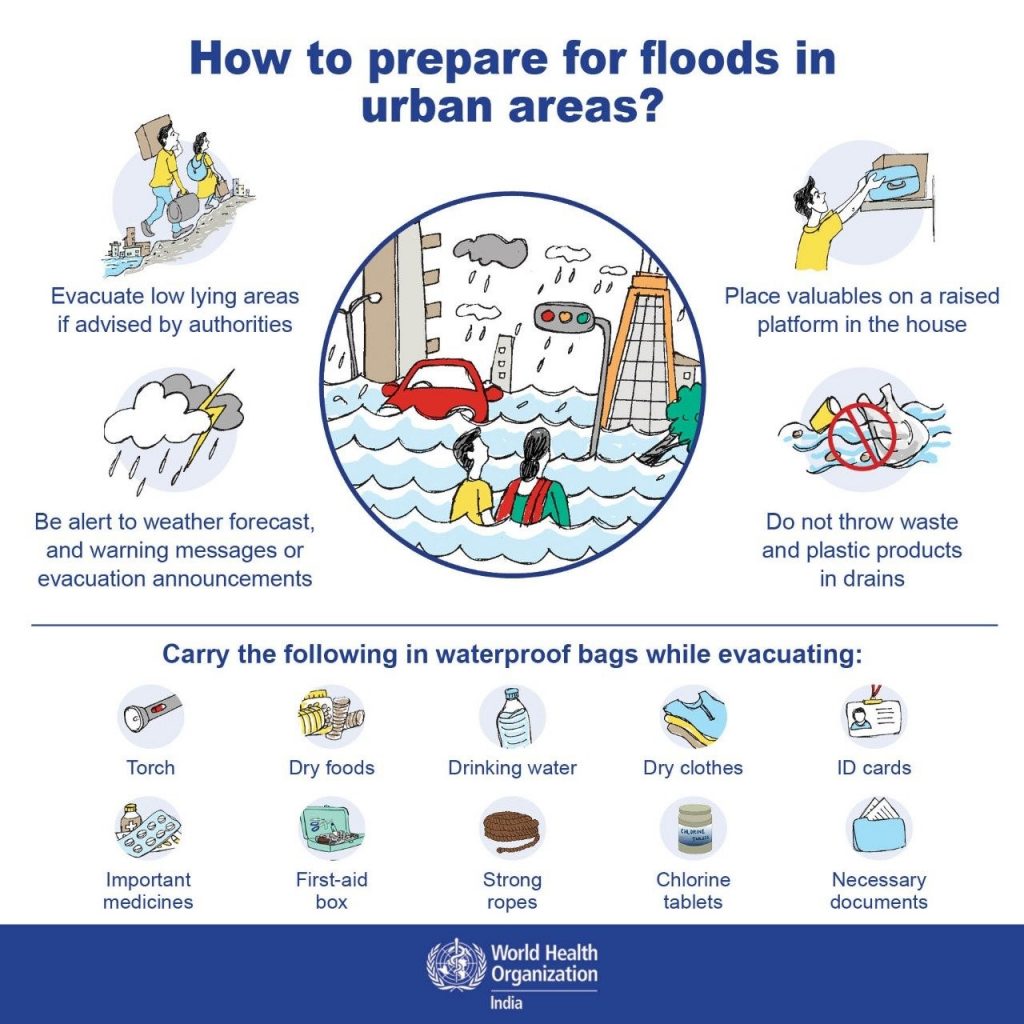
Q: What are the signs that someone has been struck by lightning?
A: There are immediate and delayed symptoms. If you see or find someone who has been struck by lightning, call for the ambulance immediately and start CPR.
Immediate Symptoms: Severe burns or wounds where the lightning entered and exited the body. Cardiac arrest or irregular heartbeat. Unconsciousness or confusion.
Muscle pain, seizures, or weakness. Hearing loss or ringing in the ears.
Delayed Symptoms: Memory problems or difficulty concentrating. Irritability or personality changes. Persistent pain or discomfort.
Q: How can we prevent drowning accidents in tourists in the sea during monsoons?
A: Enforce strict guidelines against swimming in rough seas. Install warning signs and flags indicating unsafe conditions. Ensure lifeguards are on duty at beaches and swimming areas.
Q: What should we eat during the monsoons to stay healthy?
A: The situation now is different compared to the days in the past when we had to save for a rainy day. The precautions we can take are eating fresh, home-cooked meals. Avoid pre-cut fruits. Try to avoid street food. Include immunity-boosting foods such as citrus fruits, garlic, and ginger. Avoid raw salads and opt for steamed or cooked vegetables. Drink safe filtered water.
Q: How can we make our house monsoon-safe?
A: Repair any leaks in the roof or walls to prevent water seepage. Ensure proper drainage around the house. Keep door mats to wipe the feet and foot mats to avoid slipping. Keep insect screens on windows and doors to prevent mosquitoes from entering. Store food items in airtight containers to prevent contamination.
Disconnect Electronics: Unplug electronics to prevent damage from power surges caused by lightning.
Above all, pay attention to weather warnings and avoid outdoor activities during thunderstorms.
Q: Any more education and messages for our readers?
A: Enjoy the monsoon months and the rain, but stay safe. The message is not only to the community but also to the authorities. Every year we see so many floods and so many lives lost due to floods that could have been prevented. Cities have to be prepared to be able to withstand the monsoon. There should be proper drainage and people living in flood prone areas need to be educated and prepared for any eventuality.
